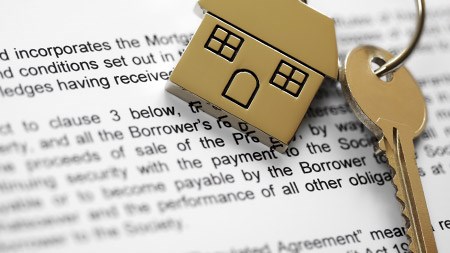It’s a very romantic time of year, summer. And romance is a beautiful thing, of course – but sometimes you might want to put the chocolates and roses aside and think for a while about the practicalities.
Especially if you’re planning to buy a home with your life partner although you’re not planning to marry legally.
The law in South Africa recognises a number of different forms of marriage contract – community of property, the accrual system, traditional marriages – but it still doesn’t recognise cohabitation: what we lay-people think of as common-law marriage.
One pervasive urban myth has it that once you’ve cohabited for a given number of years, you automatically segue into a state of common-law marriage that gives you certain rights – but this is wishful thinking. No matter how long you’ve lived together.
And yes, this might change if the Domestic Partnerships Bill ever becomes law – but it’s been a long time coming: it was proposed in 2008, and it still hasn’t been enacted. (See the Mail & Guardian of 29 August, 2014: Bill's delay leaves partners at risk.)
So it’s best to protect yourself at the beginning for what might happen at the end.
It’s in the contract
Marriage in South Africa is a voluntary institution – there’s nothing that compels us to enter into legal contracts when we decide to commit to one another. But, at least when it comes to owning fixed property, it’s not the romance that should concern us when we set out: it’s what might happen when the partnership ends (and they do all end – either because the parties decide to go their separate ways, or because one partner dies).
Still, according to Bill Rawson, Chairman of the Rawson Property Group, informal partnerships are recognised in South African law provided that each partner contributes to the partnership or promises to do so.
“The law also recognises that the contribution may be non-monetary – it can involve labour input or even just the provision of friendship and comfort,” he said, adding that, on the break-up of the alliance, the distribution of profits on the sale of the asset “should also reflect the real value of the individuals’ input.”
But this could be difficult to calculate when it comes to the sale of a property to which both partners have contributed – unless there’s a contract in place. This would have negative effects on the leaving partner in the case of a break-up, or on the surviving partner in the case of death (he or she won’t automatically inherit, and could even be excluded from the estate altogether).
Only one owner
Bill said that in most unmarried relationships the home is typically registered in the name of just one member of the partnership.
“On leaving the relationship, he or she will continue to own the property in its entirety, and the value of the other person’s contribution may be regarded as negligible.”
“Estate agents are sometimes seen as cynical when they advise an unmarried couple moving into a home together to draw up a domestic document outlining each member’s position – as people do when they enter into a marriage – but without such a written agreement it is only too easy for one partner to disagree with the other on the value of their respective contributions, and, indeed, to deny that they had an agreement at all,” said Bill.
A number of online resources offer sample cohabitation agreements (see, for example, divorcelaws.co.za) – although you should probably consult an attorney who will advise on the correct course for you given your own personal circumstances.




